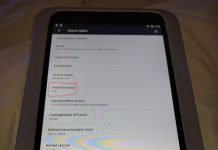 The world has been changing a lot. In the 98 years my grandmother has been alive, we’ve gone from cars as rickety novelties on dirt-track roads to polished metal eggs on highways that span the globe; the Wright Brothers’ first flight to putting people on the moon and machinery on Mars. And we’ve gone from mechanical clocks and automated looms as state-of-the-art in information technology to having powerful computer/photo/video terminals in most peoples’ pockets.
The world has been changing a lot. In the 98 years my grandmother has been alive, we’ve gone from cars as rickety novelties on dirt-track roads to polished metal eggs on highways that span the globe; the Wright Brothers’ first flight to putting people on the moon and machinery on Mars. And we’ve gone from mechanical clocks and automated looms as state-of-the-art in information technology to having powerful computer/photo/video terminals in most peoples’ pockets.
Even over the course of my own lifetime, the rate of advance has been remarkable. When I was in grade school. having computers in the schools was an amazing thing. Now I have a cell phone in my pocket that has more computing power than all the computers in the building put together when I was back in high school–thousands or millions of times more powerful than the calculators that sent man to the moon. (And what do I use it for? Yammering on social networks and snapping pictures of my restaurant food.)
I remember one of the popular anime videos of the 1980s, Megazone 23, which was edited into Robotech: The Movie. In both cases, the macguffin of the show was a transforming motorcycle robot with a "powerful database terminal" built into it that could access a central computer and expose secrets that the government didn’t want told. Now we all have "powerful database terminals" in our pockets that can access almost any Internet service that desktop computers can. (And as for exposing government secrets, well, Wikileaks is still out there.) You can’t avoid seeing them all over the place, especially if you take public transit a lot. Even older "dumb" cell phones can access the web in a limited way.
But did you ever consider the role that e-books have played in this tech shift? It is arguably thanks to the Palm Pilot that we have smartphones, e-readers, and tablets at all, and what was the Palm Pilot’s first real "killer app"? E-books. It’s probably no coincidence that many of the first attempts to build something in a tablet form factor were e-readers like the RocketBook. Sure, there were tablet computer attempts out there, but they cost several times as much and were still focused on trying to cram a full-fledged desktop computer into a tablet form factor. We didn’t get really effective tablets until Android and iOS came along for smartphones, then expanded into full-sized tablets.
But in the meanwhile, a flurry of e-readers, like Sony and Astak, came to market buoyed by the new e-ink display technology. We don’t even remember most of them since Amazon, Barnes & Noble, and Kobo segmented most of the market between them, but they were out there, reading EPUB, in the years leading up to the Kindle. And why did the Kindle come to rule the world of mobile devices, and Amazon the world of e-books? Because people wanted e-books. They just didn’t know it until Jeff Bezos showed they could be more affordable and convenient than regular ones.
Of course, other electronic media have sprung up over the years. Newspapers and magazines have gone digital, apps like Flipboard make magazine reading a whole new experience, and Instapaper and its ilk reformat web articles into their own easier-to-read-on-small-screens versions. Music and movies have migrated into the cloud as well. But I wonder whether they would have bothered without the example of e-books to show that people did like consuming entertainment and information on mobile devices like that. (The iPod did show people like taking their music mobile, but the Palm Pilot and e-books were there several years earlier.)
As tablets push out dedicated e-readers, e-books might fall by the wayside as more participatory forms of media attract tablet users’ attention away. But I doubt we would have gotten here without e-books to lead the way.
































It was because of Palm that I even gave ebooks a try. At first it felt a bit odd but due to a very long flight delay having an interesting book to read on my Palm kept me calm and quietly occupied.
P.S. It also introduced me to author Vince Flynn because his first book came on one of the Palm devices I purchased. Yes, I was a devoted Palm user and still mourn its demise.
I wanted eBooks long before Jeff Bezos came on the scene.
I first became aware of the possibility that eBooks might someday exist in the mid 70’s when I read a newspaper article about Ray Kurzweil and his efforts with OCR. I was immediately hooked and dreamed of replacing all of my paper books with eBooks.
I still have some old paper books that have never been released as eBooks, but the number of paper books in my library is dwindling slowly.
I remember talking to some of my co-workers at the time, describing the book reader that I would like to buy. It would be sized about as big as a hard cover book, say 7 inches by 10 inches by 1 inch thick, with a display of some sort on one side.
Well, it took longer than I thought, but by about 2002 I bought my first eBook reader, an HP Jornada 540. Although it was sold as a “Pocket PC” and was meant to compete with the Palm Pilot, I never used it for anything except reading books.
Now I read on a Google Nexus 7 Mark 2 tablet. I bought it specifically because of the incredible (to me) screen resolution.
I just get annoyed by stories that credit Amazon.com with starting (or even with pushing forward) the eBook revolution. In my opinion, eBooks would have grown with or without Amazon coming into existence. What Amazon did was to observe a trend developing in the marketplace, and to climb on board.
If anyone deserves credit for pushing eBooks it is Michael Hart for starting Project Gutenberg, the people who developed the Palm Pilot, the founders of Peanut Press, and Jim Baen of Baen Books, who started selling his books as eBooks in 1999.
Gary stated it well. Michael S. Hart (1947–2011)deserves more recognition for Project Gutenberg which has long provided public domain ebooks and audiobooks DRM-free. I had forgotten about Peanut Press. It and Baen Books also deserve credit for ebook adoption.
Yep. But the point is, regardless of who was most responsible for their creation, e-books were the first digital media content that found a useful home in the palm of people’s hands. And from those humble beginnings, the whole smartphone/e-reader/tablet revolution followed.
Hey Chris! Thanks for sharing your insights through this article. It’s amazing to see how the technology we’re enjoying today evolved from the Palm Pilot. I’m excited to see what the next big thing is going to be.